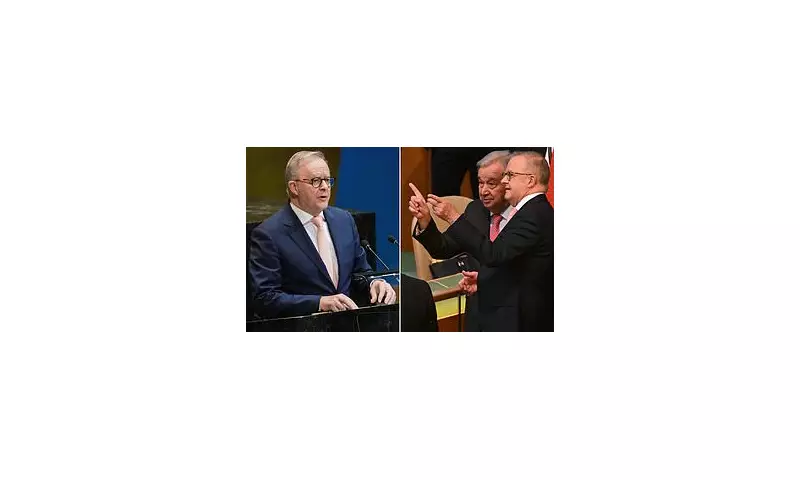
In a significant diplomatic manoeuvre that signals a clear shift in Australia's foreign policy, Prime Minister Anthony Albanese has thrown his government's support behind Palestinian statehood at the United Nations.
The move, announced during the UN General Assembly, places Australia at odds with key allies and marks a stark departure from the stance of the previous Morrison government. Mr Albanese argued that recognising a Palestinian state is a crucial step towards a lasting two-state solution in the Middle East.
A Departure from Predecessor's Stance
Foreign Minister Penny Wong had previously laid the groundwork for this shift, indicating that Australia was reconsidering its position. The decision finalises this change, aligning Australia with a growing number of nations advocating for Palestinian self-determination as a prerequisite for peace.
The announcement is expected to have considerable diplomatic repercussions. While it will be welcomed by Palestinian authorities and many Arab nations, it is likely to strain relations with Israel and could cause friction with other traditional partners.
The Path to a Two-State Solution
Mr Albanese framed the decision not as an antagonistic act towards Israel, but as a necessary measure to revive the stalled peace process. He emphasised that a secure Israel existing alongside a viable Palestinian state remains the ultimate goal.
"This is about advancing the cause of peace," a government source was quoted as saying. "The status quo is not working, and we believe this recognition can help create momentum for renewed negotiations."
The Prime Minister's speech at the UN underscored the belief that Palestinian statehood is an essential component of any sustainable resolution to the decades-long conflict.
Domestic and International Reactions
Back home, the policy shift has ignited a fierce debate. Supporters hail it as a principled and long-overdue move that positions Australia on the right side of history. Opponents, however, have criticised it as premature and argue that it rewards Palestinians without sufficient guarantees for Israel's security.
Internationally, the decision will be scrutinised as a barometer of changing global attitudes towards the Israeli-Palestinian issue. Australia's vote at the UN will now be closely watched as an indicator of the Albanese government's broader foreign policy direction.






